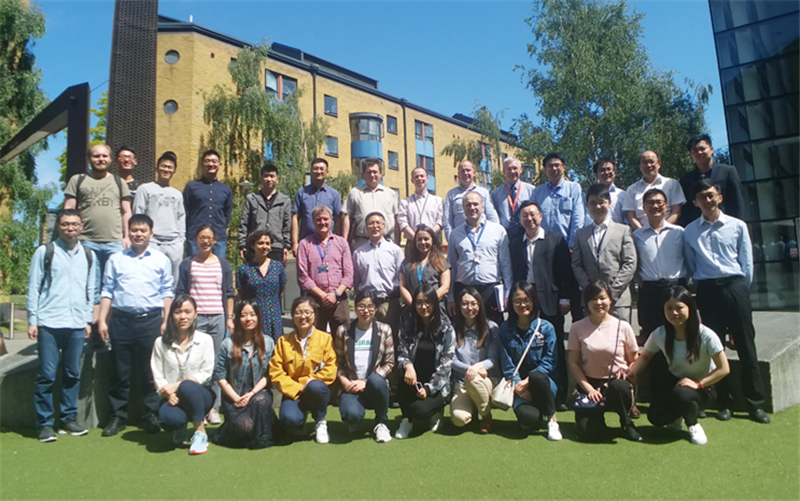
Here a picture of some of the participants in the NPU-QMUL Summer School and Workshop in Energy Nanomaterials taken place from 11th to 15th June at QMUL. Thank you for a great event and hope to meet again soon, next time in Xi’an.
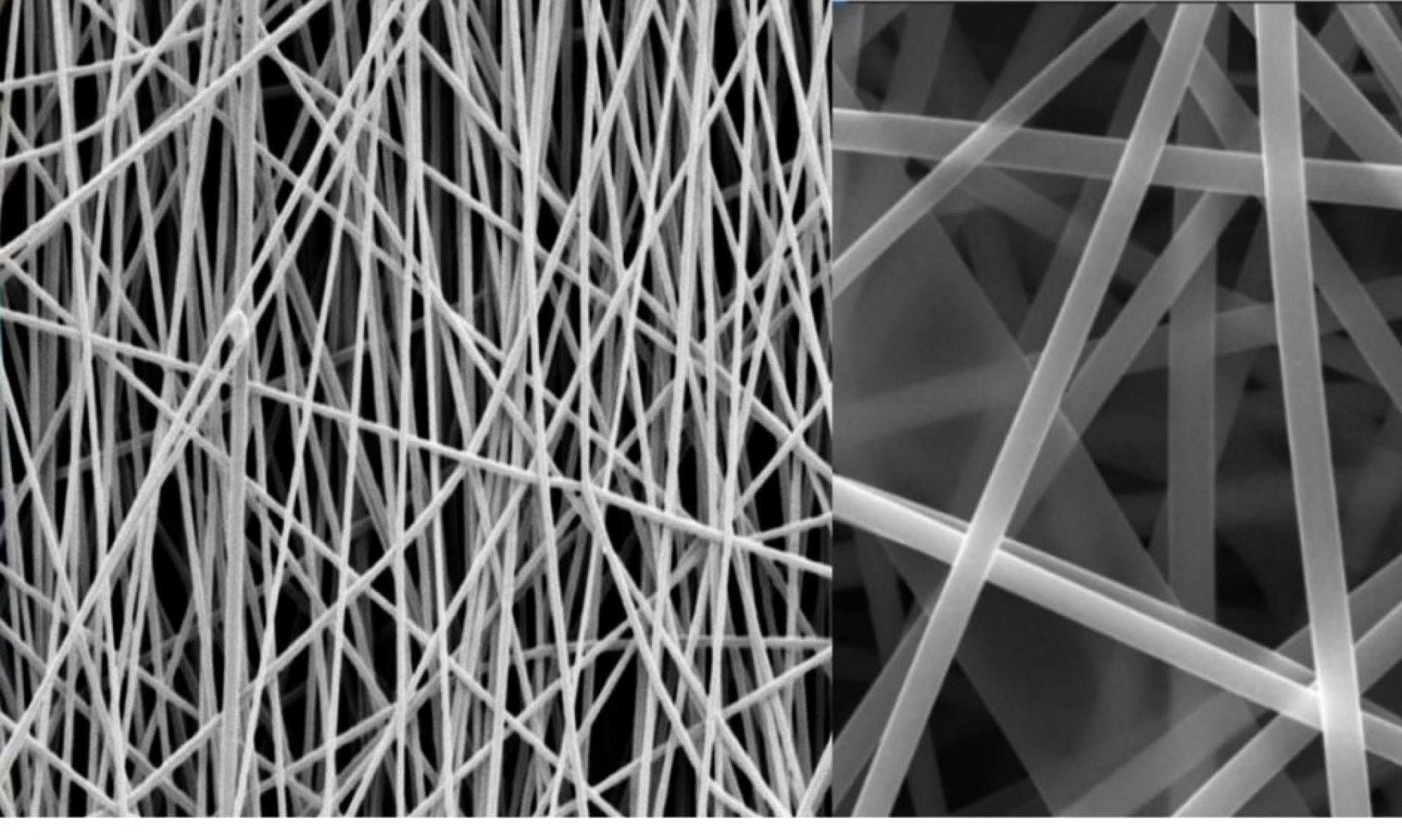

A. Jorge Sobrido´s Research Group
Advanced Energy Materials Group

Here a picture of some of the participants in the NPU-QMUL Summer School and Workshop in Energy Nanomaterials taken place from 11th to 15th June at QMUL. Thank you for a great event and hope to meet again soon, next time in Xi’an.

The conversion of bio‐waste into useful porous carbons constitutes a very attractive approach to contribute to the development of sustainable energy economy, even more as they can be used in energy storage devices. Here we report the synthesis of N‐doped carbons from hydrothermal carbonization of macroalgae, Enteromorpha prolifera (EP), followed by a mild KOH activation step. The obtained N‐doped carbon microspheres exhibited surface areas of up to ~2000 m2/g with N‐loadings varied in the ranges of 1.4~2.9 at%. By modifying activation temperature, we were able to tune surface chemistry and porosity, achieving excellent control of their properties. The specific capacitance reached value of up to 200 F/g at 1 A/g in 6M KOH, for the sample (AHC‐700) obtained at activation temperature of 700 ºC. The as‐assembled symmetric supercapacitor using the sample (AHC‐800) activated at 800 ºC as the electrodes exhibited superior cycling stability with capacitance retention of up to 96% at 10 A/g even after 10,000 cycles, constituting the highest reported so far for biomass‐derived carbon electrodes. These results show the great potential of N‐doped carbons as electrodes for supercapacitors and confirm the excellent electrochemical properties of biomass‐derived carbons in energy storage technologies.
Carbon Nitride Materials as Efficient Catalyst Supports for Proton Exchange Membrane Water Electrolyzers, AB Jorge, I Dedigama, TS Miller, P Shearing, DJL Brett, PF McMillan, Nanomaterials, 2018, 8, 432-447.
Carbon nitride materials with graphitic to polymeric structures (gCNH) were investigated as catalyst supports for the proton exchange membrane (PEM) water electrolyzers using IrO₂ nanoparticles as oxygen evolution electrocatalyst. Here, the performance of IrO₂nan o particles formed and deposited in situ onto carbon nitride support for PEM water electrolysis was explored based on previous preliminary studies conducted in related systems. The results revealed that this preparation route catalyzed the decomposition of the carbon nitride to form a material with much lower N content. This resulted in a significantenhancement of the performance of the gCNH-IrO₂ (or N-doped C-IrO₂) electrocatalyst that was likely attributed to higher electrical conductivity of the N-doped carbon support.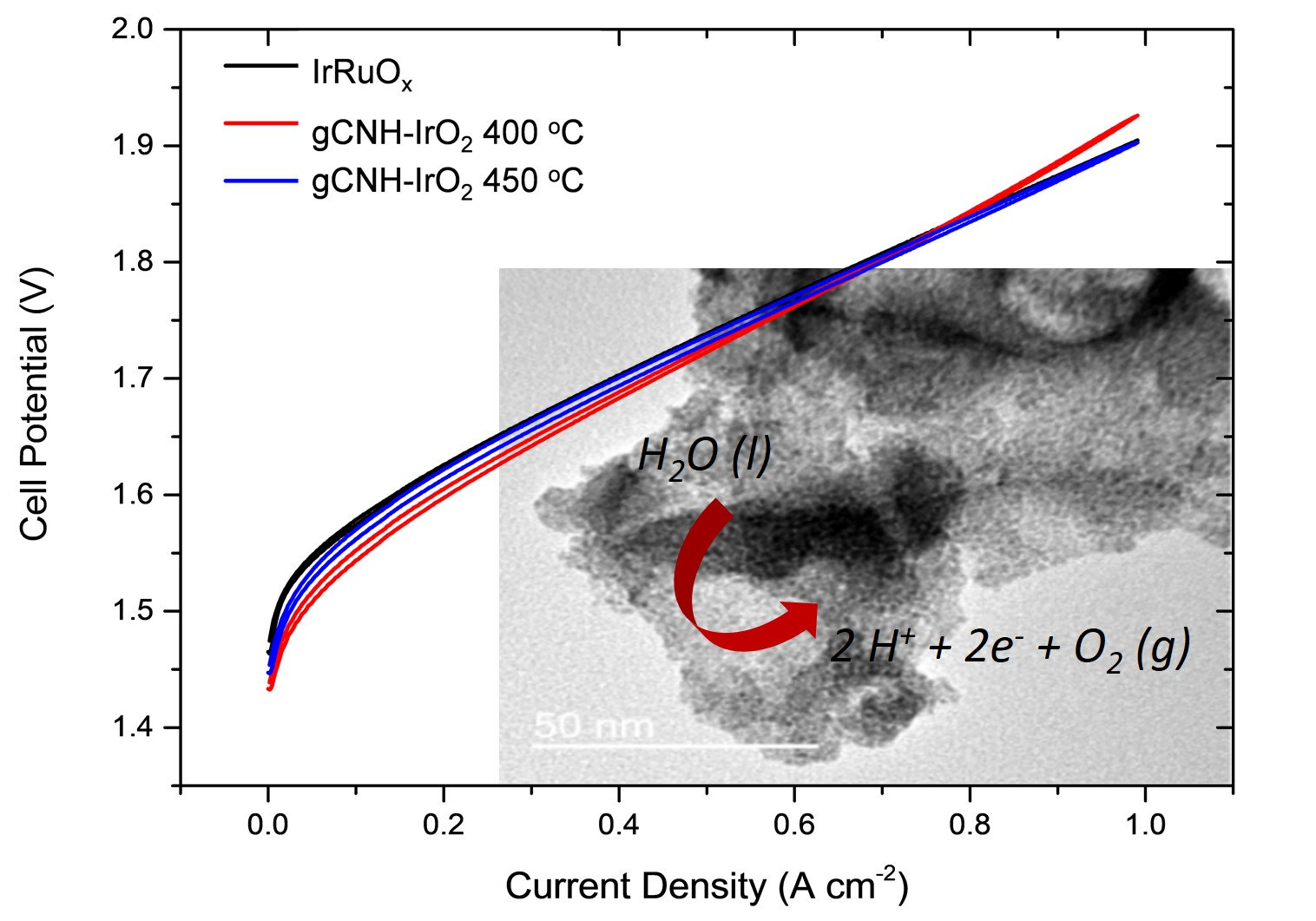
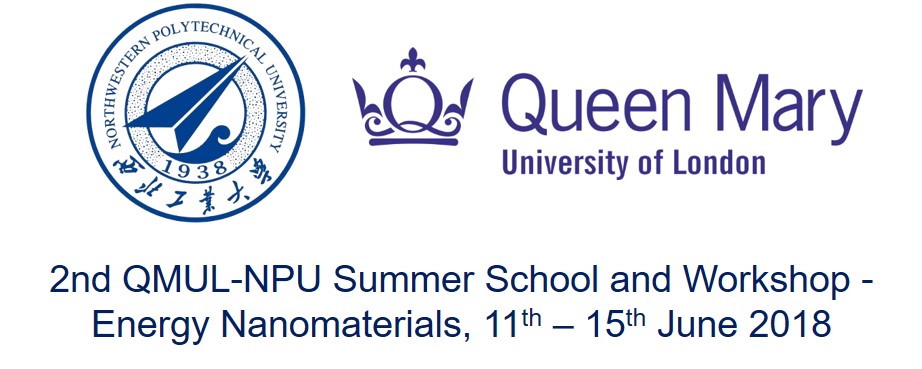
We are pleased to announce that the 2nd QMUL-NPU Summer School and Workshop – Energy Nanomaterials will take place from the 11th to 15th June 2018.
This event will host 15 PhD students and 8 academic researchers from Northwestern Polytechnical University, NPU, one of China’s top universities with which QMUL has formed a partnership and established a Joint Educational Institute. They will share their research with QMUL researchers through presentations from students and staff from both institutions.
Have a look at the final programme!
We have recently visited the Universidad de Antioquia within the framework of a Newton Institutional Links project in collaboration with Prof. Diana Lopez and also Prof Magda Titirici (QMUL). The project focuses in developing biomass-derived carbons from Colombian palm tree waste for energy applications. Below some pictures with students and academics from Colombia during our visit.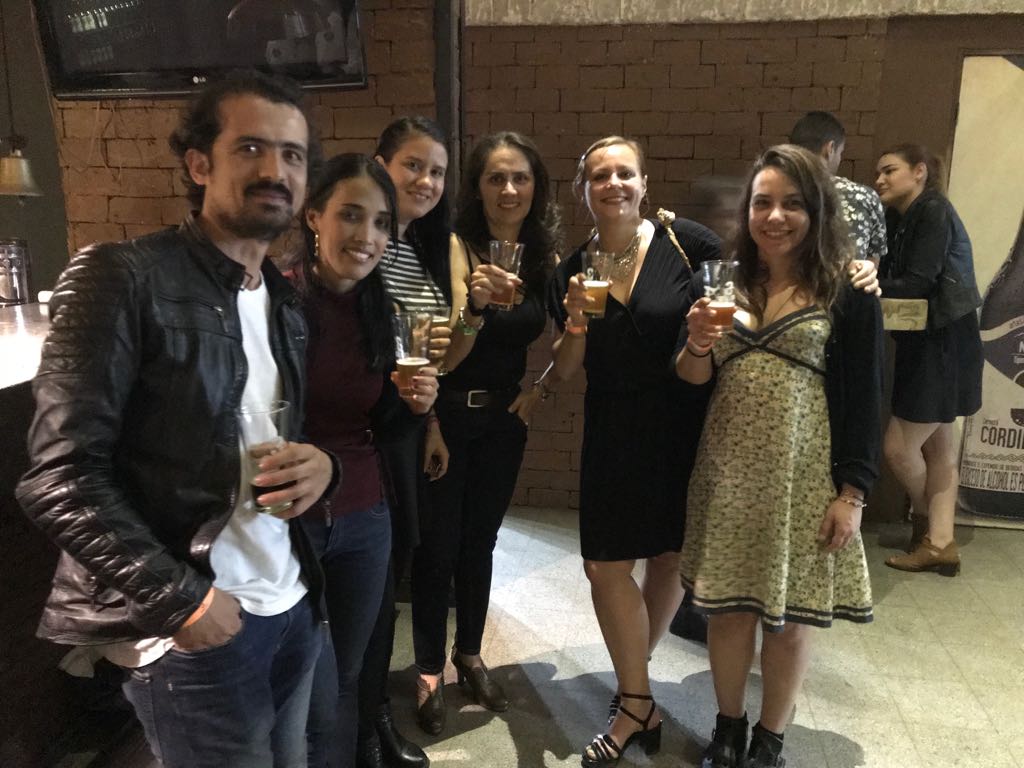
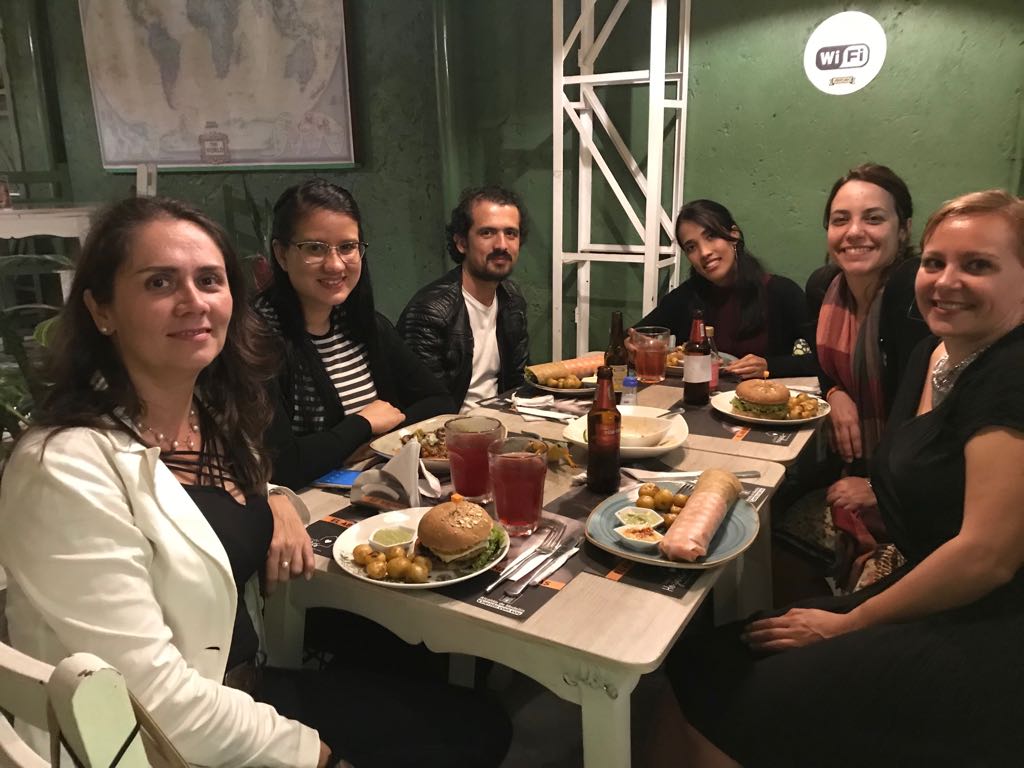
The group has been awarded a CAM-IES grant (May 2018-May 2019) to develop new free-standing electrodes for redox flow batteries based on biomass-derived carbons. This project will be conducted in collaboration with Dr. Rhodri Jervis at the EIL, UCL Chemical Engineering Department.
ABSTRACT. Redox flow batteries represent a remarkable low cost and durable alternative for grid-scale energy storage. They often employ carbon felts or papers as the electrodes, but the activity towards the redox reactions are often poor, leading to low operating power densities. Additionally, the complex flow characteristics of the electrodes are often not well understood. This project will synthesise novel electrode structures from sustainable carbon sources via electrospinning, which will allow control of physical characteristics such as porosity, surface area and fibre size, but also to incorporate chemical species that help enhance the kinetics of the redox processes. Advanced x-ray imaging will provide a unique insight into the microstructural properties of the electrodes, and electrochemical testing in a full flow battery system will help identify new materials that will lead to improved flow battery performance and durability. The project will take advantage of already existing expertise and equipment at UCL and QMUL and will look to provide a proof of concept as a springboard for further funding and research. The rapid feedback of characterisation into the synthesis of the electrodes will allow expedited identification of desirable chemical and structural properties for the next generation of flow batteries.
Welcome Pavel ! Pavel has just joined the group to do a PhD on B-doped C nanoribbons for ORR in PEM Fuel Cells. You can learn more about him here.
Ana Belen Jorge Sobrido was invited to give a seminar at the LISE, UMPC in Paris, as part of her visit to the labs to discuss an ongoing collaborative project between QMUL and LISE.
Welcome Linh ! Linh has just joined the group to do a PhD on oxygen electrocatalysis in collaboration with RISE in Sweden. You can learn more about her here.
Welcome Abdoulhamid ! Abdoulhamid has just joined the group to do an internship as part of his MSc in France. He will be working on redox flow batteries. You can learn more about him here.